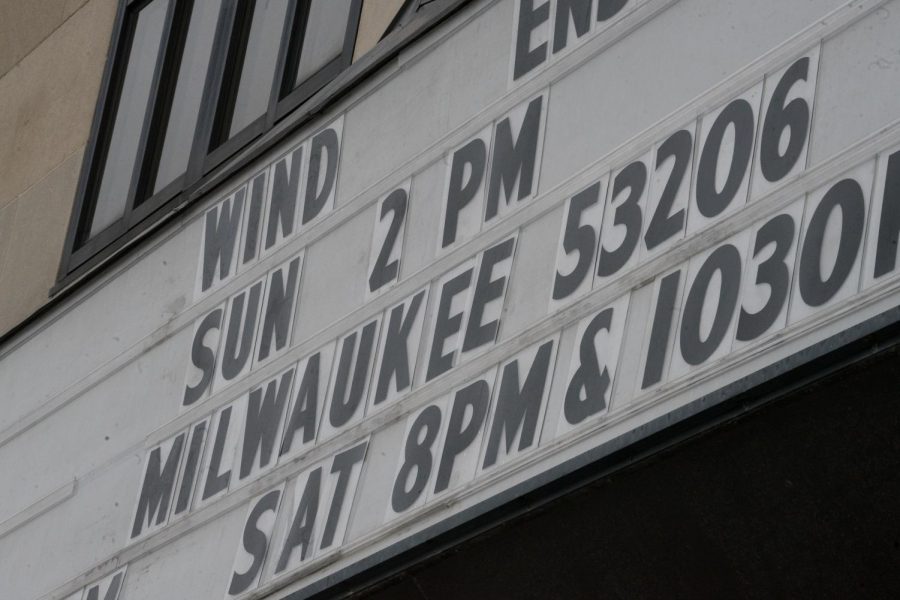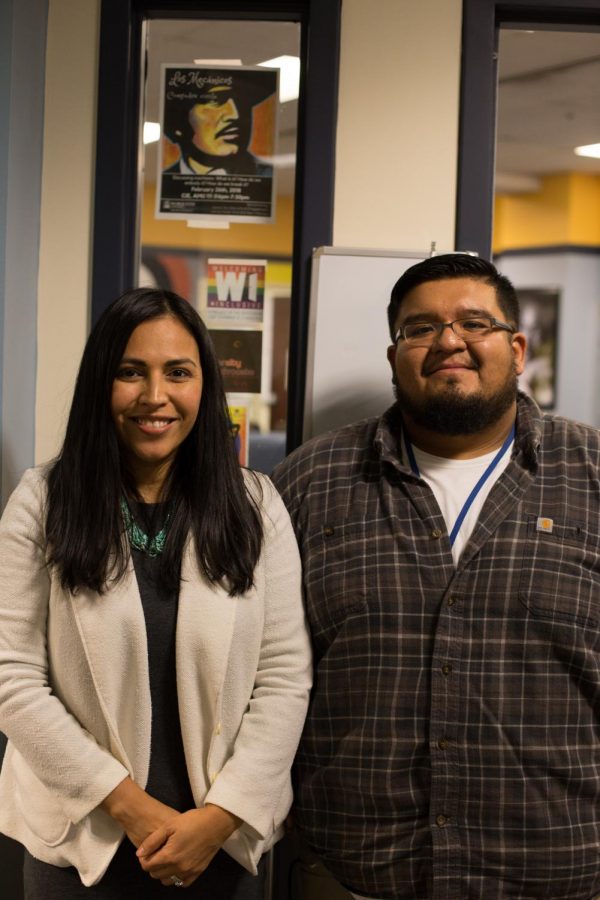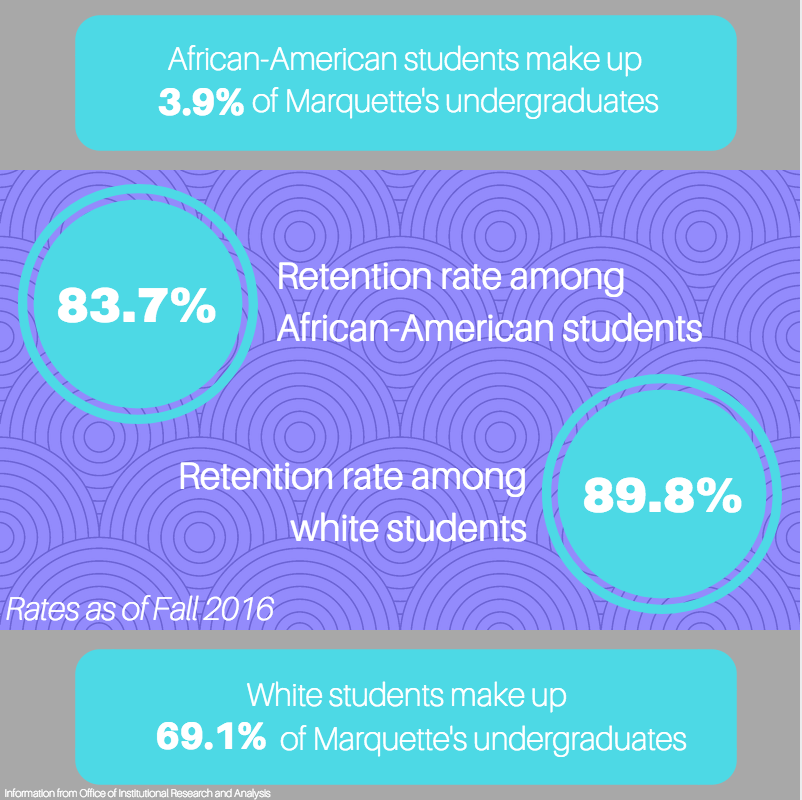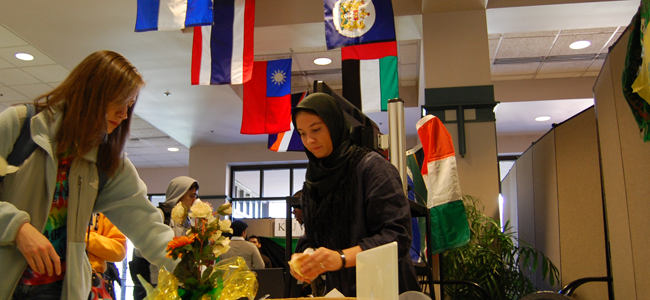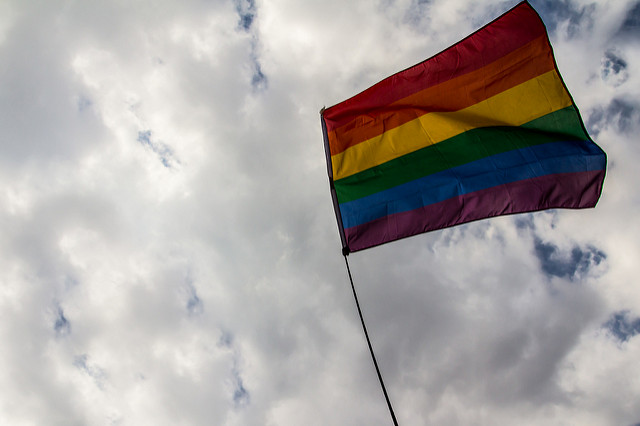Marquette University Student Government, the Center for Urban Research, Teaching and Outreach and the Center for Intercultural Engagement aired the award-winning documentary “Milwaukee 53206” Friday and Saturday nights at the Varsity Theatre.
The documentary, which aired in 2016 features families of Milwaukee in the 53206 ZIP code. According to a 2007 study from the University of Wisconsin-Milwaukee, around 62% of males, aged 30-34, have been incarcerated in this ZIP code. The film focused on the toll that this number can have on the inmates, their families and the community around them.
Following the documentary, Baron and Beverly Walker, 53206 community members who were featured in the film, held a discussion about difficult topics addressed in the film and answered questions from the audience.
Paige Hunt, MUSG vice president of programming and a senior in the College of Health Sciences, said that MUSG’s hope with this presentation was to increase diversity as an organization.
“One of the main goals of MUSG this year was focusing on diversity and equity programming,” Hunt said. “We’ve never had a really strong overarching mission for the entire (MUSG) program, and we wanted to change that this year to become a little more cohesive.”
The selection of “Milwaukee 53206” came from the students , Hunt said. She said ever since the film was shown and discussed on campus in 2017, students had shown interest in the documentary.
“(The documentary) just became this thing,” Hunt said. “We decided that we would bring the documentary back.”
Robert Smith, the director of the Center for Urban Research, Teaching and Outreach and history professor said it is important for students to hear the stories told in the documentary to stimulate discussion about individuals who have been incarcerated.
He said that those convicted of crimes are marginalized in society. “If somebody said your classmate is a convicted felon, what would all the thoughts be that go to your brain about who that person is, about our safety,” Smith said.
He went on to say these stories help bring the human aspect back into the discussion of incarceration. The overwhelming majority of the people who are incarcerated are not the individuals that our society makes them out to be, Smith said. “These stories remind us, through this documentary, that these are human beings, first and foremost,” Smith said.
The documentary focused on a number of different individuals who were affected by the struggling community of 53206.
Baron Walker is a 45-year-old, African-American man who grew up in the 53206. He was convicted of two ‘party-to-a-crime’ armed robberies. His conviction came under a law which was later changed in 1999. Walker was unable to apply for parole, which meant life outside prison. He had to have great behavior to even be considered for a parole hearing. The changes were made but didn’t apply to the individuals who had committed crimes under the old law, that is before December of 1999.
“I have missed so many milestones with my children and grandchildren and this was due to my poor choices when I was young,” Walker wrote in a letter to the public. “I have served adequate time for my crimes and would like to be home with my family and give my wife a well-deserved break.” Walker wrote this letter while incarcerated to increase awareness of his unfair situation. He wanted his community to realize that there was unfair sentencing for individuals who committed the same crimes at different times.
Walker’s wife Beverly took care of their five children while Walker was incarcerated for more than 21 years. Beverly worked the same job for 20 years, took care of their children and found time to spread Baron’s story in the community. She worked tirelessly to try and help Baron receive parole instead of more years behind bars. She said she never expected the documentary to reach such a high level of viewership and support.
“That for us meant that we had access to people we would otherwise not have had access to,” Beverly said,” And I really didn’t know that it would make a difference at all.”
Beverly said she still gets emotional when she watches the documentary because it’s her life and she knows what that pain felt like.
“Overall, is it worth it? Yes. Would I do it again? Yes. Is (Baron) worth it? Hell yes,” Beverly said.
Melissa Potter, the director of social impact and communications at Odyssey Impact, a team of film and social justice professors who create documentaries, ran the social impact campaign for “Milwaukee 53206.” She said she was hopeful that students would benefit from the documentary.
“Our goal is to raise awareness of the effect mass incarceration has on communities with absent parents and encourage support systems for children, families and communities,” Potter said in an email. “We hope screening the film will promote the de-stigmatization of those in the criminal justice system, as well as bring healing among families and communities who have been disproportionally affected by incarceration.”
Odyssey Impact has helped promote this film across the country and helped many universities get screenings to increase awareness of the issue, Potter said. As of March 31, 2018, “Milwaukee 53206” had been shown to more than 15,000 people in 175 screenings across the nation, according to Odyssey Impact’s website.
“With universities like Marquette choosing to screen the film, we help further dialogue and help to educate and activate audiences on the issue of mass incarceration,” Potter said in an email. “When we set out to make ‘Milwaukee 53206,’ our goal was not simply to make a film, but to make a change.”
The film was awarded the Special Recognition Award at the (In)Justice for All Film Festival 2017, Best Documentary at the Urbanworld Film Festival 2017, the National Council on Crime and Delinquency Media for a Just Society Award and more, according to Odyssey Impact’s website.
“This no longer became something that was just about my husband,” Beverly Walker said. “I met so many other people who were impacted by this. Now, my fight is for the people who are still impacted.”

